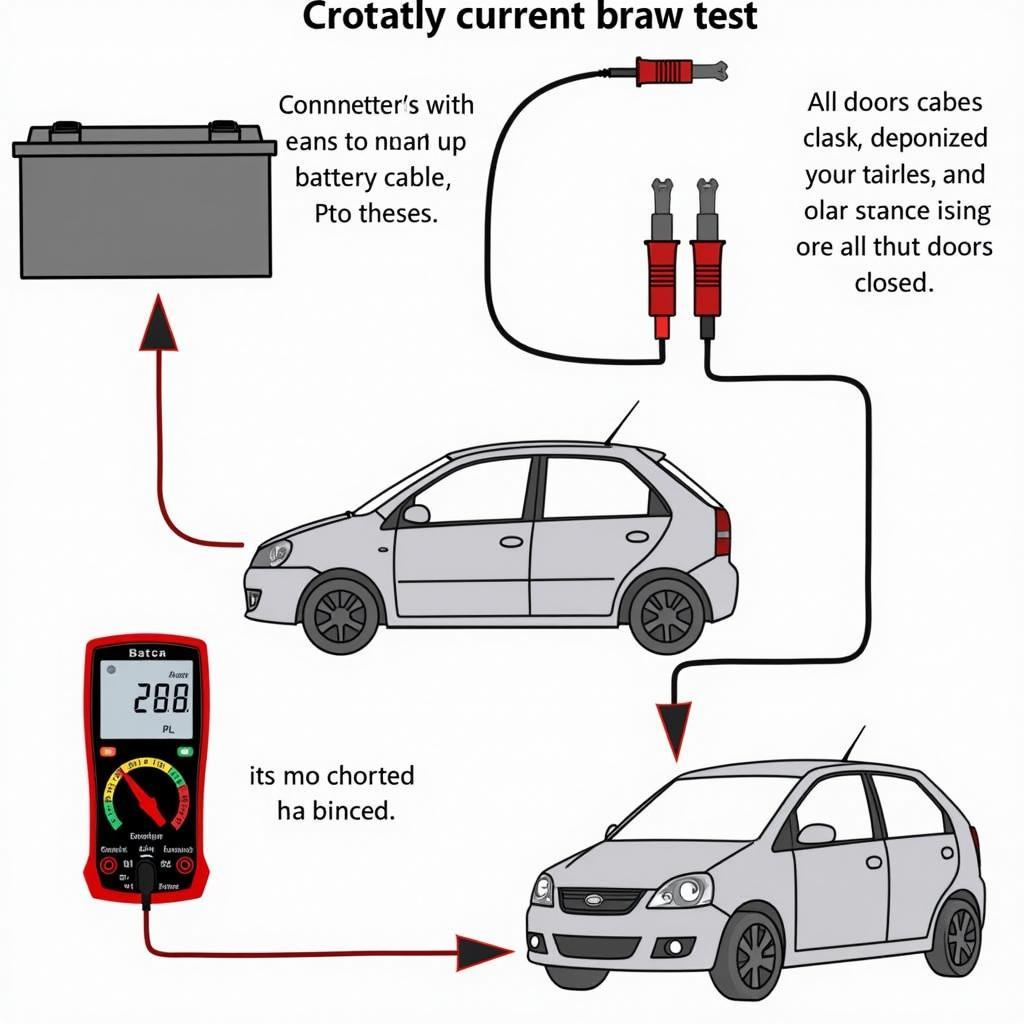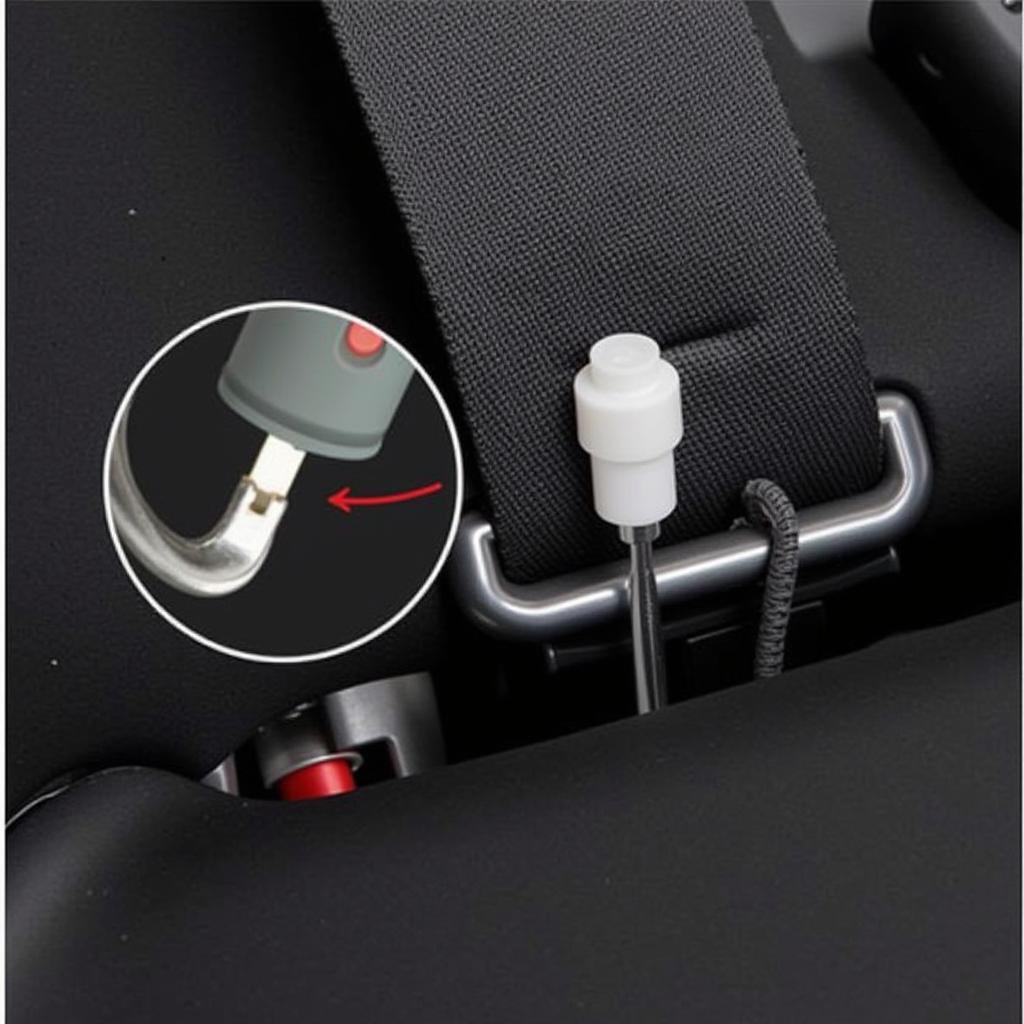The brake warning light on your dashboard is a crucial safety feature, especially if you’re driving a 2012 Dodge Journey. When this light illuminates, it signals a potential issue with your vehicle’s braking system, requiring immediate attention. Ignoring this warning could lead to brake failure, putting you and your passengers at risk.
While the 2012 Dodge Journey is known for its reliability, some common issues can trigger the brake warning light. Let’s explore the potential causes and how to address them effectively.
Common Causes of a 2012 Dodge Journey Brake Warning Light
Understanding the potential reasons behind your brake warning light is crucial for efficient troubleshooting. Here’s a breakdown of the most common culprits:
-
Low Brake Fluid: This is the most frequent cause. Brake fluid is the lifeblood of your braking system, transferring force from the brake pedal to the wheels. A leak or worn-out brake pads can lead to low fluid levels, triggering the warning light.
-
Worn Brake Pads: Brake pads are designed to wear down over time. When they become too thin, a sensor embedded within the pad contacts the rotor, illuminating the warning light. This indicates it’s time for a brake pad replacement.
-
Faulty Brake Light Switch: The brake light switch activates your brake lights when you press the pedal. If it malfunctions, it can disrupt the brake light circuit and trigger the warning light, often accompanied by non-functioning brake lights.
-
ABS Issue: The Anti-lock Braking System (ABS) prevents wheel lockup during hard braking. If the ABS module or a wheel speed sensor malfunctions, it can trigger the warning light.
-
Parking Brake Engaged: Sometimes, the simplest explanation is the most likely one. If the parking brake is even slightly engaged, it can illuminate the brake warning light.
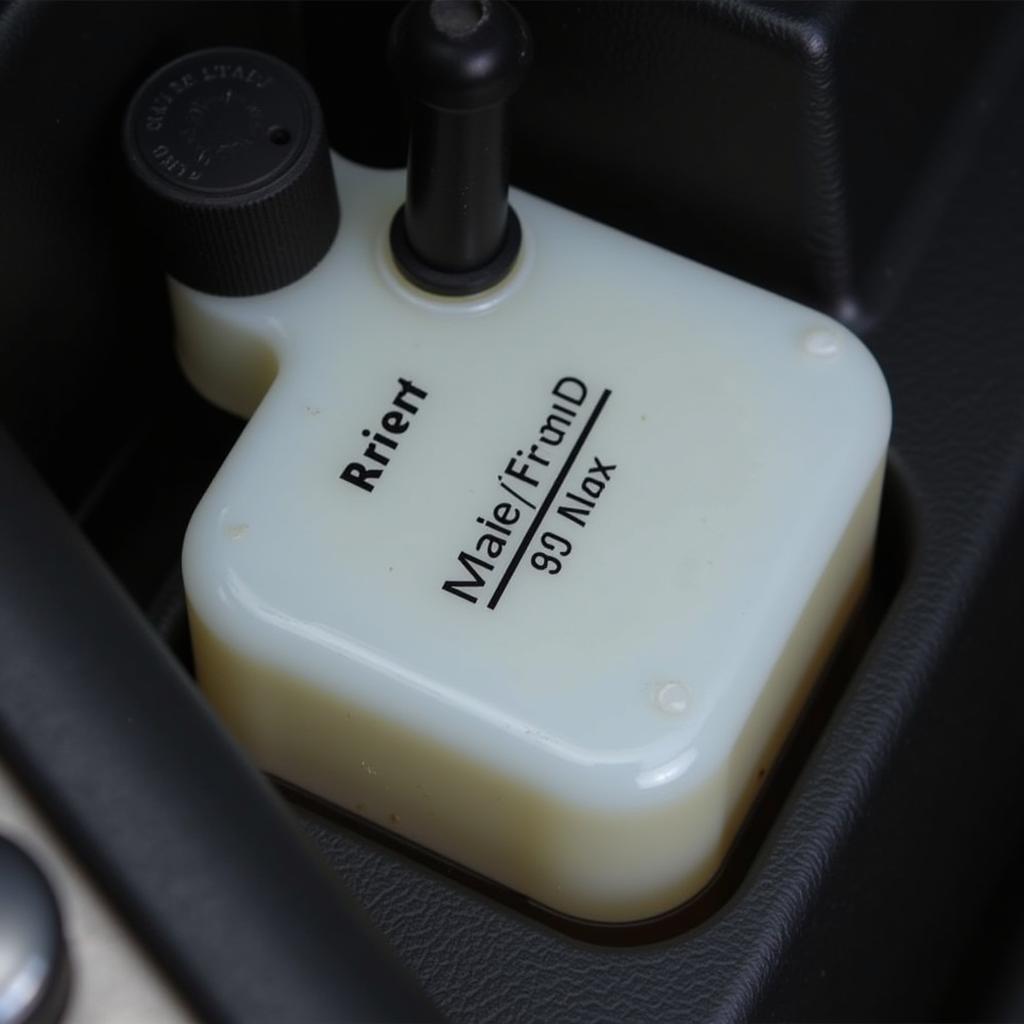 2012 Dodge Journey Brake Fluid Reservoir
2012 Dodge Journey Brake Fluid Reservoir
Troubleshooting Your Brake Warning Light
Before you panic, remember that a glowing brake warning light doesn’t always signal a catastrophic failure. Start by checking these simple things:
-
Check Your Parking Brake: Ensure the parking brake is fully released. Sometimes, a slight bump can engage it partially.
-
Inspect Brake Fluid Level: Open the hood and locate the brake fluid reservoir. The reservoir will have “Min” and “Max” lines. If the fluid level is below the “Min” line, add the correct type of brake fluid for your 2012 Dodge Journey.
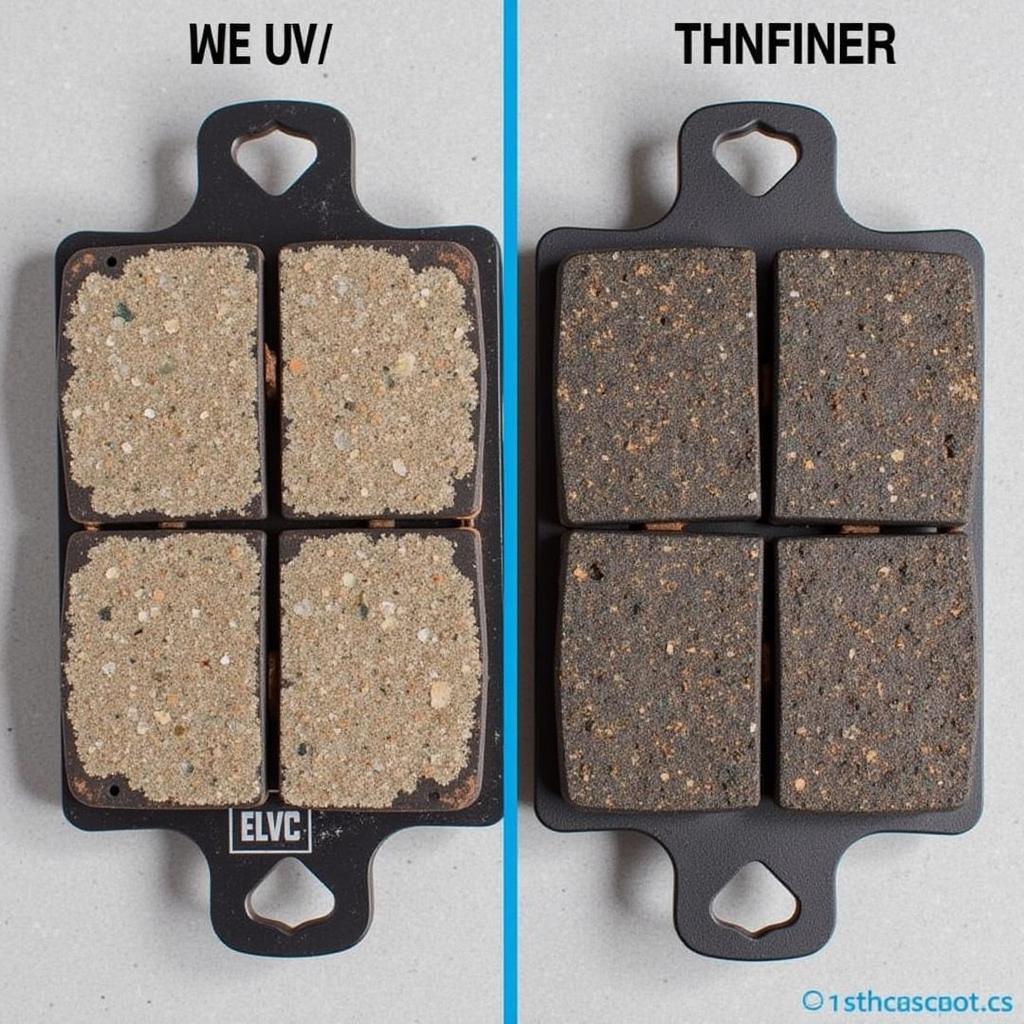 Worn Brake Pads on a 2012 Dodge Journey
Worn Brake Pads on a 2012 Dodge Journey
- Listen for Unusual Noises: When applying the brakes, listen for any grinding, squealing, or scraping sounds. These noises often indicate worn brake pads and require immediate attention.
When to Seek Professional Help
If the brake warning light remains illuminated after checking the above, it’s best to consult a qualified mechanic specializing in Dodge vehicles. They have the expertise and diagnostic tools to identify and rectify more complex issues like:
-
Diagnosing ABS Problems: Mechanics can use a scan tool to read ABS fault codes, pinpointing the issue’s root cause, whether it’s a faulty sensor or a problem with the ABS module itself.
-
Identifying Brake Fluid Leaks: A professional can inspect the entire brake system for leaks, including brake lines, calipers, and the master cylinder.
-
Electrical System Troubleshooting: A mechanic can diagnose electrical issues related to the brake light switch or wiring harnesses.
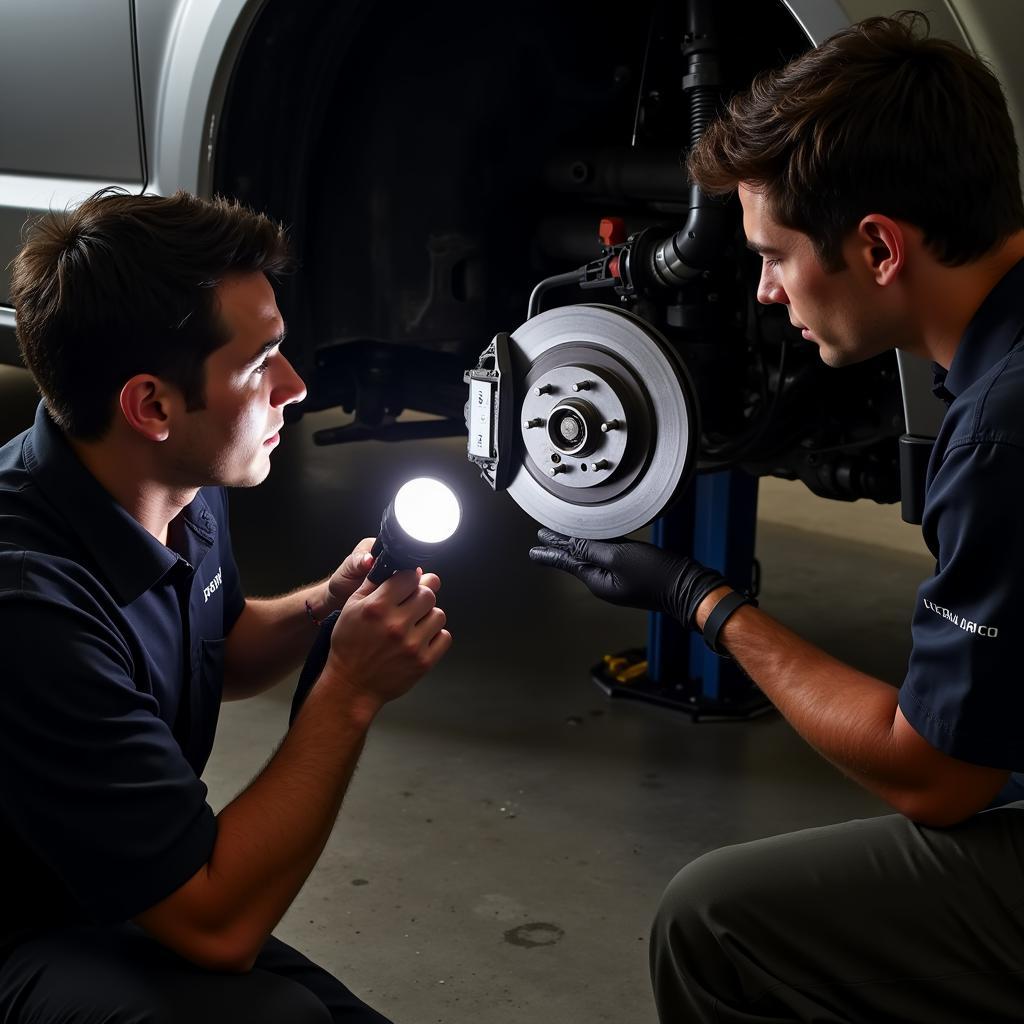 Mechanic Inspecting Brake System of a 2012 Dodge Journey
Mechanic Inspecting Brake System of a 2012 Dodge Journey
Conclusion
Addressing the brake warning light in your 2012 Dodge Journey is not something to postpone. By understanding the common causes and taking appropriate steps, you can ensure the safety and reliability of your vehicle. Remember, regular maintenance, including timely brake pad replacements and brake fluid checks, is crucial for preventing future brake problems. If you’re ever in doubt, seek professional assistance from a qualified mechanic.

